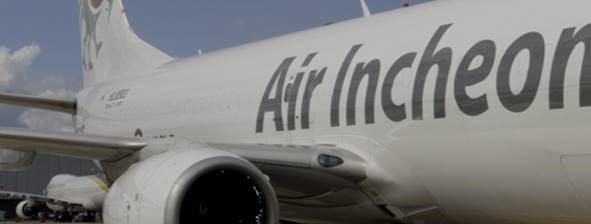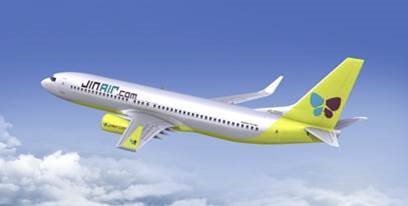EXTRANS GLOBAL - Air Freight News - Week 33 2024
Air Cargo General
1) Bangladesh, Soaring Air Cargo Freight Rates

-
Bangladesh has an apparel (Ready made garments: RMG) export market worth around $47 billion. This includes global customers such as Inditex, which owns brands like Zara and Massimo Dutti, as well as H&M, Marks & Spencer, GAP, Levi's, US Polo, and American Eagle. The major importing countries for these products are the United States ($10 billion), Germany ($10 billion), and the United Kingdom ($5 billion).
-
A local logistics industry official stated, "While cargo transportation has become possible from July 25th, it will take a lot of time to clear the backlog. Particularly, air cargo freight rates to Europe and North America are at an all-time high." They further added, "As direct flights are difficult, companies are providing AIR & AIR services with stopovers in Colombo, Singapore, Malaysia, and Dubai. They are also using a combination of road and air transport (Road & AIR), connecting to Delhi, India, and sea and air (SEA & AIR) via Colombo and Dubai, utilizing all possible means."
-
It is estimated that AIR & AIR and ROAD & AIR services take around 10 days to reach Europe and the US, while SEA & AIR services take 14 to 22 days, depending on the transit points. However, a representative stated, "Despite this, delays and additional freight charges are inevitable due to longer transit times and the inability to find connecting flights at the transit points.
-
On average, the rates are around $6 per kg for Europe and $8.5 per kg for the US.
-
Meanwhile, this disruption has had a positive impact on Indian apparel exporters, as they are filling the void created by the turmoil in Bangladesh. The Apparel Export Promotion Council (AEPC) of India has reported an increase in India's apparel exports recently.
2) The Decrease in Demand from China Directly Results in a Drop in Air Cargo Prices

-
Global average air cargo rates are experiencing an adjustment period and are showing a slight downward trend.
-
According to the Baltic Air Freight Index (BAI), the average air cargo rate in the first week of August decreased by 1.2% compared to the previous week. However, it is still 89% higher compared to the same period last year.This downward trend in air cargo rates is due to the decrease in demand originating from China.
-
Rates from Hong Kong (HKG) have declined slightly week-over-week, but are still 21.3% higher compared to the same period last year. Rates from Shanghai (PVG) also decreased by 0.7% compared to the previous week, but are 30.4% higher year-over-year.
-
Rates from Europe are also undergoing an adjustment period. Rates from Frankfurt (FRA) have declined by 3.7% week-over-week and are 24.6% lower compared to the same period last year. Rates from London (LHR) have declined by 6.4% week-over-week, despite an increase in demand for routes to the Americas, and are 23.7% lower year-over-year.
-
Rates from North America are also showing weakness. Rates from Chicago (ORD) have declined by 2.2% week-over-week and are 20.2% lower compared to the same period last year. While demand for Europe-bound cargo from the US is increasing, the overall decline in demand for routes to China and Latin America is driving the downward trend in rates.
3) Asiana Cargo's 470 billion won acquisition by Air Incheon, which has the potential for strategic procurement

-
Air Incheon has agreed to acquire Asiana Airlines' cargo business for 470 billion won. The aviation industry reacted that this is a 'strategic acquisition' at a lower price than initially expected.
-
This is because Air Incheon acquired the cargo business without taking on Asiana's debt. The relatively old age of the cargo aircraft to be acquired was also a factor in the lower price. After the acquisition, Air Incheon is expected to become the second-largest air cargo operator in Korea.
-
Air Incheon, the preferred bidder for Asiana Airlines' cargo business, signed a legally binding master agreement (MA) with Korean Air on April 7th.
-
The agreement details the transaction structure, timeline, and conditions.The transaction structure is a physical spin-off and merger. Asiana Airlines will first spin off its cargo business, which will then be absorbed by Air Incheon. Accordingly, Air Incheon will pay the 470 billion won transaction price to Asiana Airlines, which will then become a subsidiary of Korean Air after the acquisition.
-
The aviation industry initially expected the sale price of Asiana's cargo business, including its debt, to far exceed 1.5 trillion won. As of July this year, Asiana's total debt is close to 12.8 trillion won, with the cargo business accounting for 1 trillion won.
-
However, Air Incheon agreed to acquire the Asiana Airlines cargo business unit without taking over the existing debt. The existing debt will remain with Asiana Airlines.This debt will now be a matter for Korean Air to resolve in the course of its acquisition process.
- Additionally, the acquisition price was set lower than expected due to the fact that Asiana Airlines' cargo fleet consists of 11 aircraft, most of which are old models aged 20-30 years.
- The 6 Boeing 747-400BDSF aircraft, which were converted from passenger models to cargo, were produced between 1991 and 1999. The 4 Boeing 747-400F aircraft, which were originally manufactured as cargo planes, were produced between 1994 and 2000. The Boeing 767-300F was also an aging model, produced in 1996.
- An Air Incheon official said, "The acquisition price for Asiana Airlines' cargo aircraft is set at an average of $20 million (about 270 billion won) per plane." They also mentioned, "In addition to the aircraft, we will be taking over around 800 employees and office facilities of Asiana Airlines' cargo business unit, but the hangars and ground handling services are excluded from the acquisition." The official explained, "The 470 billion won is an appropriate amount that reflects the fair market value.
- With the acquisition of Asiana Airlines' cargo business unit, Air Incheon is expected to become the second-largest air cargo operator in Korea, following Korean Air. Based on last year's figures, the combined international air cargo transport volume of Air Incheon (39,000 tons) and Asiana Airlines (725,000 tons) will exceed 760,000 tons. Korean Air's volume was 1,464,000 tons.
-
Furthermore, Air Incheon is expected to consistently generate annual sales of over 1 trillion won, making this acquisition a lucrative deal. Last year, Asiana Airlines' cargo business recorded 1.6 trillion won in revenue and 70 billion won in operating profit.
-
Meanwhile, the sale of Asiana Airlines' cargo business unit was a precondition set by the European Commission (EC) prior to approving the merger between Korean Air and Asiana Airlines, as the EC was concerned about the potential monopoly in the cargo business. Consequently, Korean Air selected Air Incheon as the preferred bidder for Asiana Airlines' cargo business in June.
-
As a result, the EC is expected to grant final approval for the Korean Air-Asiana Airlines merger around October. Once the approval from the U.S. Department of Justice (DOJ) is obtained by the end of this year or early next year, the process of separating and selling Asiana Airlines' cargo business will commence.
4) Jin Air - 2nd quarter operating profit plunged 95% year-on-year to 900 million won due to high exchange rates

-
Jin Air announced on the 8th that its operating profit in the second quarter of this year recorded 900 million won, a 94.9% decrease compared to the same period last year.
-
During the same period, sales increased by 19% year-on-year to 308.2 billion won, but the net loss turned to 5.9 billion won.
-
Jin Air maintained a seven-quarter consecutive operating profit streak since the fourth quarter of 2022 by recording an operating profit in the second quarter.
-
This is interpreted as the result of efficiently operating aircraft through new route launches and increasing flights on popular routes. However, the operating profit decreased compared to the same period last year due to the rise in exchange rates and a drop in sales prices in the second quarter.
-
Jin Air expects passenger business to remain solid in the second half of this year, but foresees uncertainties such as exchange rate and fuel price volatility, as well as economic recession.
-
A Jin Air official said, 'We will maximize profitability by improving operational efficiency and strategically operating routes, and focus on providing the highest safety and customer-centric service, actively responding to aviation industry restructuring to secure future competitiveness.

top



